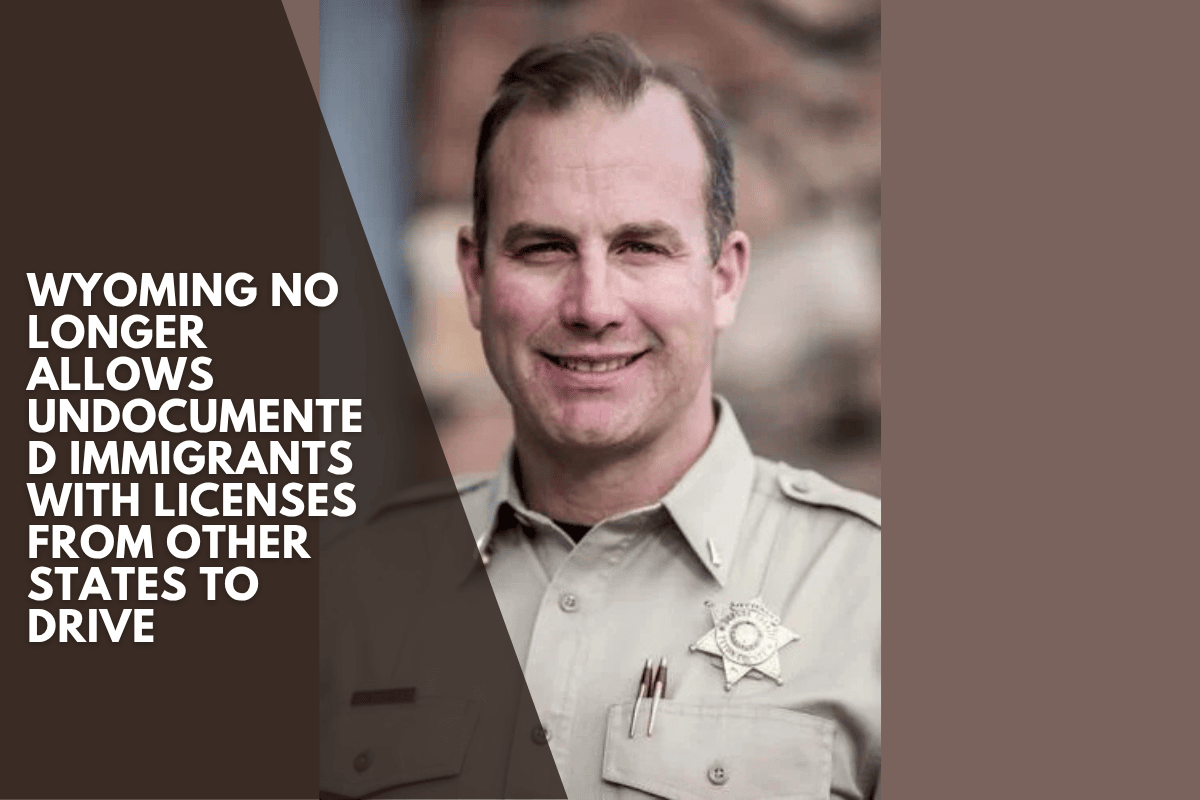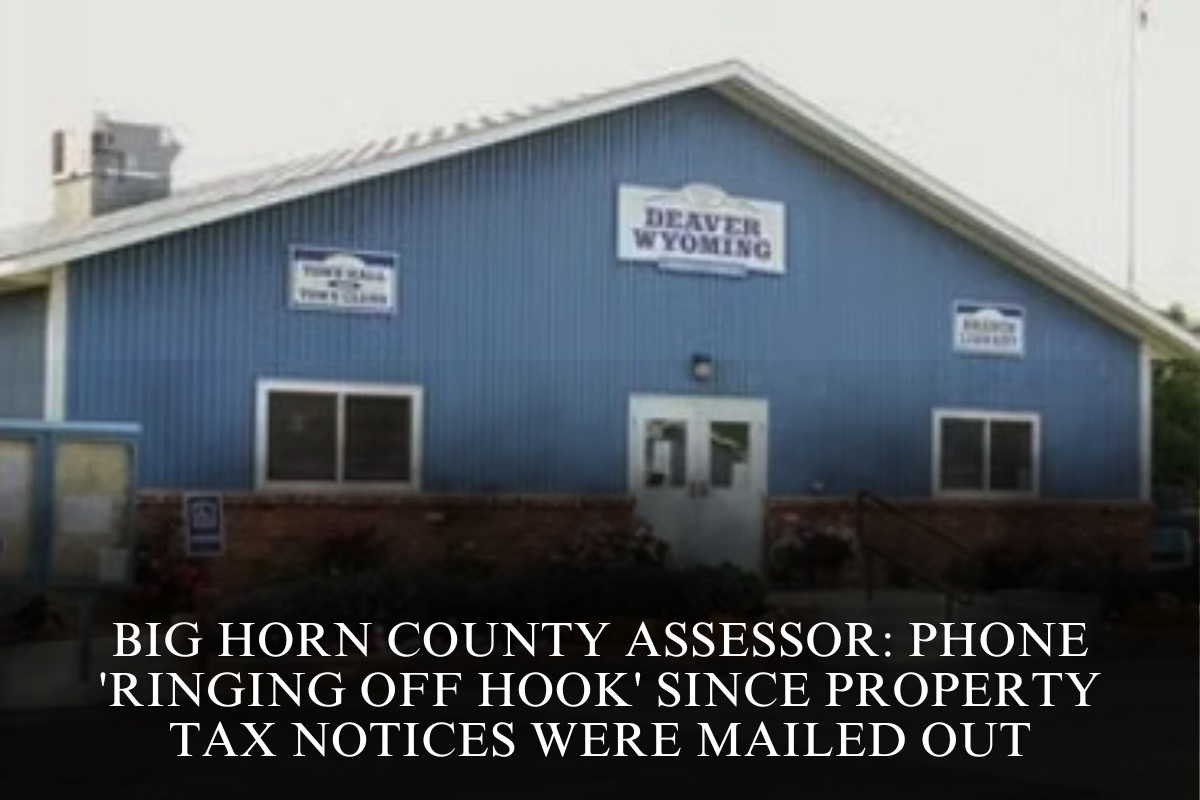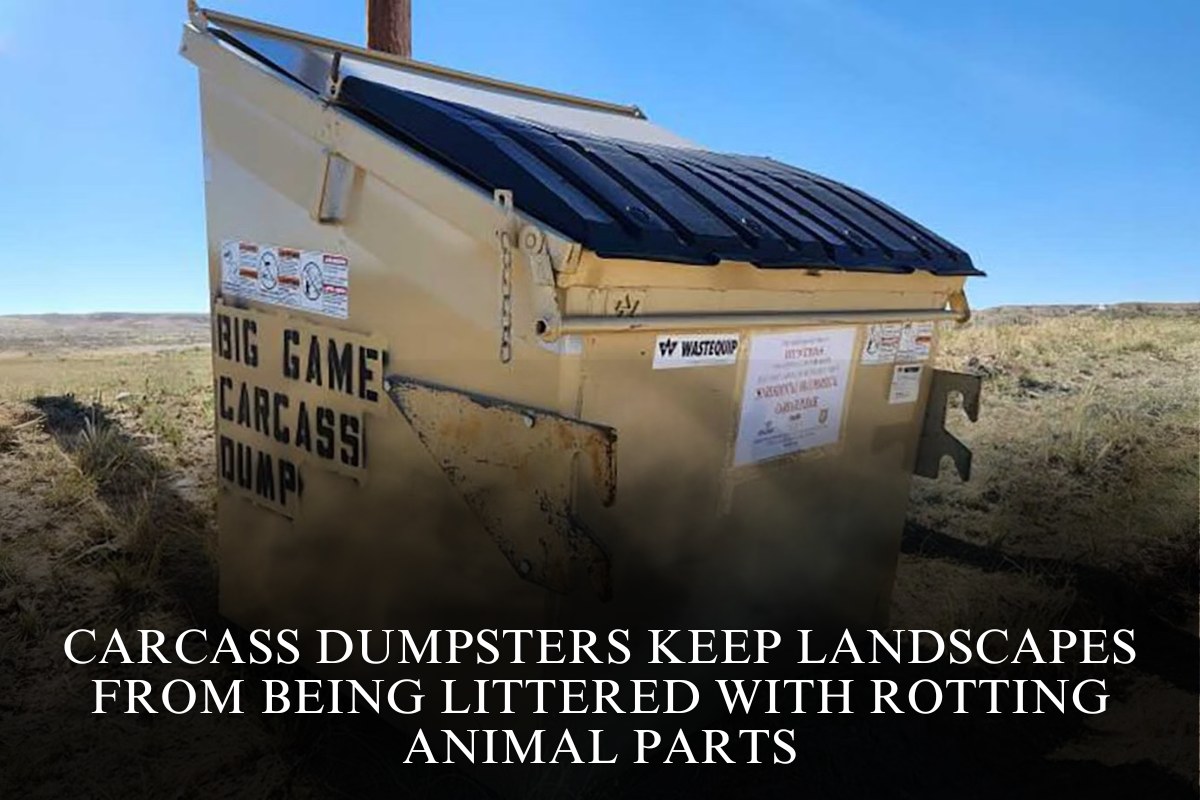JACKSON — As new immigration laws go into effect this month, the Teton County Sheriff’s Office and Jackson Police Department are figuring out how to enforce them under a single driver’s license bill.
House Bill 116 invalidates out-of-state driver’s licenses for undocumented immigrants driving in Wyoming, even if the licenses were legally issued by other states or jurisdictions.
When drivers with this type of license enter the state, they risk being charged with a misdemeanor for driving without a license, as well as being held in a county jail for 48 hours by Immigration and Customs. People convicted of the crime may face a fine of up to $750, six months in prison, or both.
“This is the strictest anti-immigrant driver’s license law in the country,” said Rosie Read, the Wyoming Immigrant Advocacy Project’s founder and an attorney. She said Wyoming outperformed states like Florida, which have attempted to limit undocumented immigrants’ ability to travel in their state.
Rep. Pepper Ottman, R-Riverton, sponsored the driver’s license law, which was one of the top five priorities outlined by the Freedom Caucus in its “Five and Dime Plan,” which was released prior to the 2025 legislative session.
“This is good policy,” Ottman told members of the Senate Judiciary Committee in February. “In recent years, we have seen the rise of sanctuary cities and sanctuary states as havens for illegal immigrants. Some states have announced, planned, and even implemented legislation to allow what they consider unauthorized immigrants to obtain driver’s licenses.
On third reading, Ottman stated that it was time to “fight back” and received support from 45 of the House’s 62 members. The bill was passed by the Senate on a 22-8-1 vote.
“Woke states granting driver’s licenses to illegal immigrants are aiding and abetting criminal acts,” said Freedom Caucus chair Rep. Rachel Rodriguez-Williams (R-Cody). “Those who have illegally entered the country in violation of our laws should not be rewarded with public accommodations.”
Read is receiving calls from across Wyoming asking if it is illegal for residents to get in their cars and drive right now. She stated that there are many drivers with legally acquired licenses, many of whom are from the state of Washington. Washington does not require a period of residency for a license and makes no inquiries about immigration status.
She explained that the process for undocumented people to drive legally was established for a variety of reasons, many of which are safety-related. It encourages drivers to learn traffic laws and rules, pass a driving test, and obtain insurance, she said. This helps to reduce the number of accidents and hit-and-runs.
According to Read, laws like HB 116 are intended to make immigrants’ lives so difficult that they leave the country on their own accord, risking being barred from returning to America for up to ten years.
“It’s unrealistic to advise people not to drive in a rural location like this,” says Read. “Immigrants have a strong representation in certain industries, housekeeping being one of them, construction being another, and landscaping.”
She stated that the locations of these large properties are not in town and are difficult to reach by bus or bike. Examples included homes along Fall Creek or Fish Creek, as well as the Amangani hotel.
“If people need to get to work, and their employer or the person who’s contracting with them is relying on them to get there, I think folks don’t have a choice but to get in their car sometimes,” she told me. “My advice is to do that as minimally as possible and carefully as possible.”
ICE interactions
As an attorney, she stated that she would not encourage residents to break the law. However, she advised drivers to check the taillights or the light above their license plate and repair any cracks in their windshields to ensure their safety. She stated that this reduces the likelihood of initiating a traffic stop.
“The likelihood is now stronger that it will lead to an arrest,” she told reporters. “Which will put you directly into ICE custody if you don’t have authorization to be in the U.S.”
The Teton County Sheriff’s Office began honoring all 48-hour ICE hold requests in the Teton County jail in March, following national attention for its previous policy.
Instead of only complying with judge-signed detainer requests, any noncitizen request made by an ICE agent or supervisor is approved. According to the Sheriff’s Office, this allows federal agents to travel across the state away from the ICE Denver Field Office, which oversees Wyoming.
Matt Carr, Teton County Sheriff, stated in March that he did not want to cause anxiety in the community. He reassured residents that reporting crimes or seeking emergency services is safe. His law enforcement officers will continue not to inquire about immigration status when responding to an emergency.
However, he acknowledged on Monday that ICE is traveling to Jackson more frequently than before to pick up noncitizens who have been held in Teton County custody for an additional 48 hours. Read stated that she received calls from four or five people who were recently arrested for minor offenses such as driving without a license and placed in ICE custody.
“They’re not getting 100%,” Carr explained. “They’re pretty close.”
Enforcement
The Teton County Sheriff’s Office and the Jackson Police Department both declined to comment on HB 116 enforcement.
Carr stated on Monday that arresting people for violating HB 116 will be difficult until the Sheriff’s Office receives clear guidance on which out-of-state driver’s licenses to investigate. Carr stated that he is waiting for rules from the Wyoming Department of Transportation. The state transportation agency was given the authority to develop “rules necessary to implement” the new law.
Carr stated that it is difficult to determine the probable cause because many drivers in the tourist hub are not only from out of state, but also from out of country. Nineteen states and the District of Columbia have passed legislation allowing unauthorized immigrants to obtain a driver’s license, and there is no clear way to determine what documents someone used to qualify as soon as the driver is pulled over. WYDOT officials testified to the Legislature during the session, stating that no standards have been established.
However, Carr stated that if any law enforcement officers had probable cause to believe the law had been broken, his office would investigate.
“It’s like any other crime,” he explained.
Jackson Police Chief Michelle Weber said in a statement on Friday that her department was also waiting for direction from WYDOT and the county attorney’s office.
However, Wyoming Department of Transportation rules may never be issued. The state transportation agency stated on Tuesday evening that the “rules are not necessary as the intent and application of the law is clear.”
“Any person who is not legally present in the United States is not permitted to drive in Wyoming,” said Doug McGee, a public affairs officer for WYDOT. “As such, we see no need to promulgate rules at this time.”
McGee stated that law enforcement had not contacted WYDOT regarding the enforcement or implementation of HB 116.
Carr stated on Tuesday that he had not received this email or notification from WYDOT. The county attorney’s office told him to expect rules to be released, and that was the last information he received. The Jackson Police Department declined to comment on the WYDOT update that was provided to the Jackson Hole News&Guide.
Enforcement is not the only aspect of the law that has sparked concerns.
The Wyoming ACLU contends that HB 116 has “questionable legal merit in that it requires that Wyoming deviate from its commitments and obligations to recognize the validity of driver’s licenses issued by other U.S. states and jurisdictions.”
WYDOT and lawmakers were both unsure of the impact on the Interstate Driver’s License Compact, which includes all 50 states and four territories. This position remained unchanged as of Tuesday.
“We were clear in our testimony that there could be implications to the compact which are as yet unknown,” McGee informed the jury.












